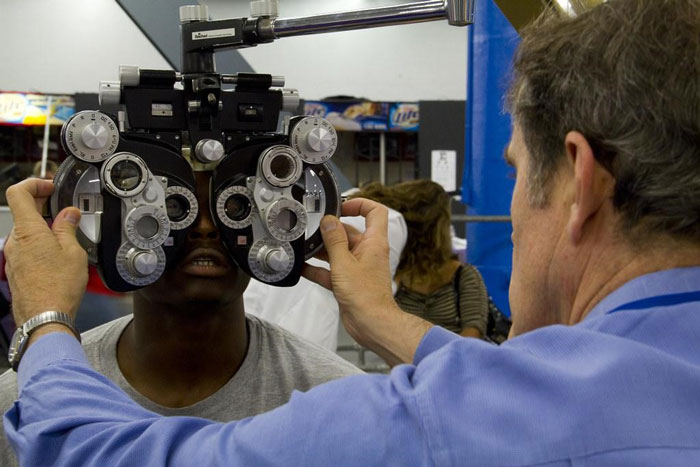
With Glaucoma Awareness Month upon us, we need to talk about this sight-stealing disease.
According to the National Eye Institute (NEI), more than 3 million Americans have glaucoma, and over 60 million people worldwide have glaucoma. And by 2030, the NEI predicts that this number will increase to 4.2 million, a 58 percent jump.
But What is Glaucoma?
Put simply, glaucoma is a group of eye conditions that damage the optic nerve. The damage is often caused by extraordinarily high pressure in your eye. The health of the optic nerve is crucial for your vision; it is what connects your eye to your brain. When it becomes damaged, your eye can’t send full images to your brain.
Glaucoma is usually considered the “sneak thief of sight” due to its lack of symptoms. That is why many people with glaucoma don’t even realize that they have it. Over time, people slowly lose their sight, starting in their peripheral (side) vision. Because it happens over time, they can’t tell that their vision is changing.
How Does It Affect Daily Life?
According to the Glaucoma Foundation, more than a million people are diagnosed with glaucoma each year. For many of those people, glaucoma makes it too difficult to work.
Taking the time to understand and speak about glaucoma will help you. Also, understanding your options for taking care of yourself, including social security disability insurance (SSDI) eligibility, can help you.
What Happens Now?
Once you see an optometrist for a comprehensive eye exam and are diagnosed with glaucoma, you should prepare yourself for one of two options.
- With regular eye exams, early detection, and treatment, you can preserve your eyesight. Different types of glaucoma may need different kinds of medical treatment.
- Or, if you are one of many that did not detect glaucoma early on. If left untreated, glaucoma leads to irreversible damage to your vision.
Either way, you can apply for SSDI benefits. The Social Security Administration (SSA) could possibly help you, based on their criteria. Rather than focusing on the glaucoma, they will instead focus on the severity of your vision before determining whether you can receive benefits.
According to the SSA, you must meet this criteria in order to qualify for benefits for any visual impairment:
- You must have a loss in your central field of vision and must see no better than 20/200 in your better eye; or
- You must have a shrinking field of vision in your better eye; or
- You must have blurry vision, unfocused vision, or total blindness, along with vision in your better eye that is no better than 20/200 with corrective lenses.
See more on the criteria for SSDI Benefits for Visual Impairments
Cervoni Disability Law can definitely help you through the process. Our SSDI attorney works solely on Social Security Disability claims. Because of our experience, so many individuals and their families come to us to help them through the disability application or appeals process.
Contact Our Social Security Disability Law Firm Today
Having a social security disability lawyer on your side can definitely make a difference in your case. If you suffer from glaucoma or any injury or mental or physical illness that affects you from working in Virginia, Maryland, or Washington DC, contact us for a free consultation with a Social Security disability attorney. Call us at 703-241-2625, or you can email us at info@cervonidisabilitylaw.com.








